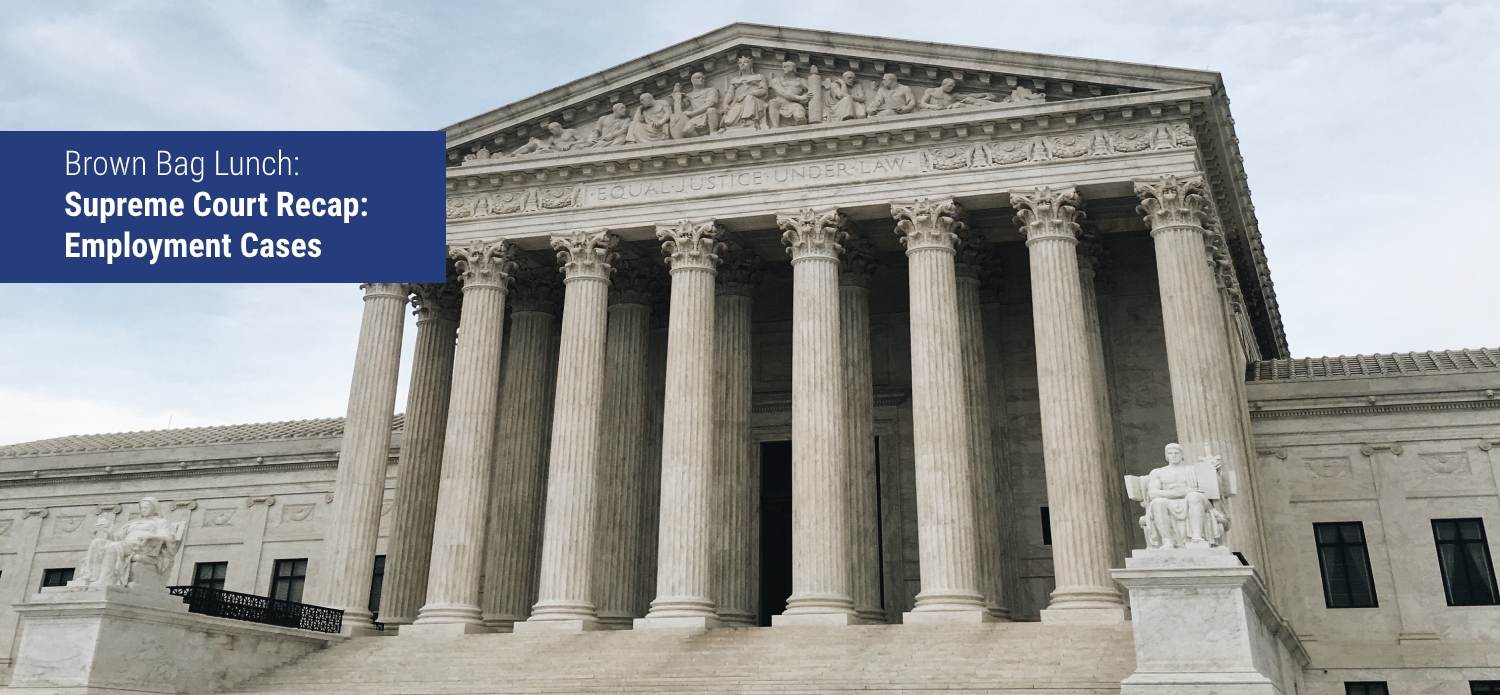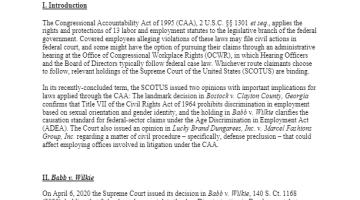I. Introduction
The Congressional Accountability Act of 1995 (CAA), 2 U.S.C. §§ 1301 et seq., applies the rights and protections of 13 labor and employment statutes to the legislative branch of the federal government. Covered employees alleging violations of these laws may file civil actions in federal court, and some might have the option of pursuing their claims through an administrative hearing at the Office of Congressional Workplace Rights (OCWR), in which Hearing Officers and the Board of Directors typically follow federal case law. Whichever route claimants choose to follow, relevant holdings of the Supreme Court of the United States (SCOTUS) are binding.
In its recently-concluded term, the SCOTUS issued two opinions with important implications for laws applied through the CAA: The landmark decision in Bostock v. Clayton County, Georgia confirms that Title VII of the Civil Rights Act of 1964 prohibits discrimination in employment based on sexual orientation and gender identity, and the holding in Babb v. Wilkie clarifies the causation standard for federal-sector claims under the Age Discrimination in Employment Act (ADEA). The Court also issued an opinion in Lucky Brand Dungarees, Inc. v. Marcel Fashions Group, Inc. regarding a matter of civil procedure – specifically, defense preclusion – that could affect employing offices involved in litigation under the CAA.
II. Babb v. Wilkie
On April 6, 2020 the Supreme Court issued its decision in Babb v. Wilkie, 140 S. Ct. 1168 (2020), holding that federal employers violate the Age Discrimination in Employment Act (ADEA) if personnel actions involving employees age 40 or over are “tainted by” considerations of the employee’s age.
We analyzed this decision in depth during our Brown Bag presentation on May 20, 2020. The outline from that presentation is available on the OCWR web site at https://www.ocwr.gov/sites/default/files/CAA Causation After Babb v Wilkie.pdf.

